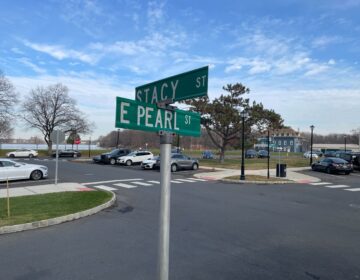Trenton makes, the world drives: N.J. historian lauds ‘Magic’ of America’s first sports car
Listen 1:37-
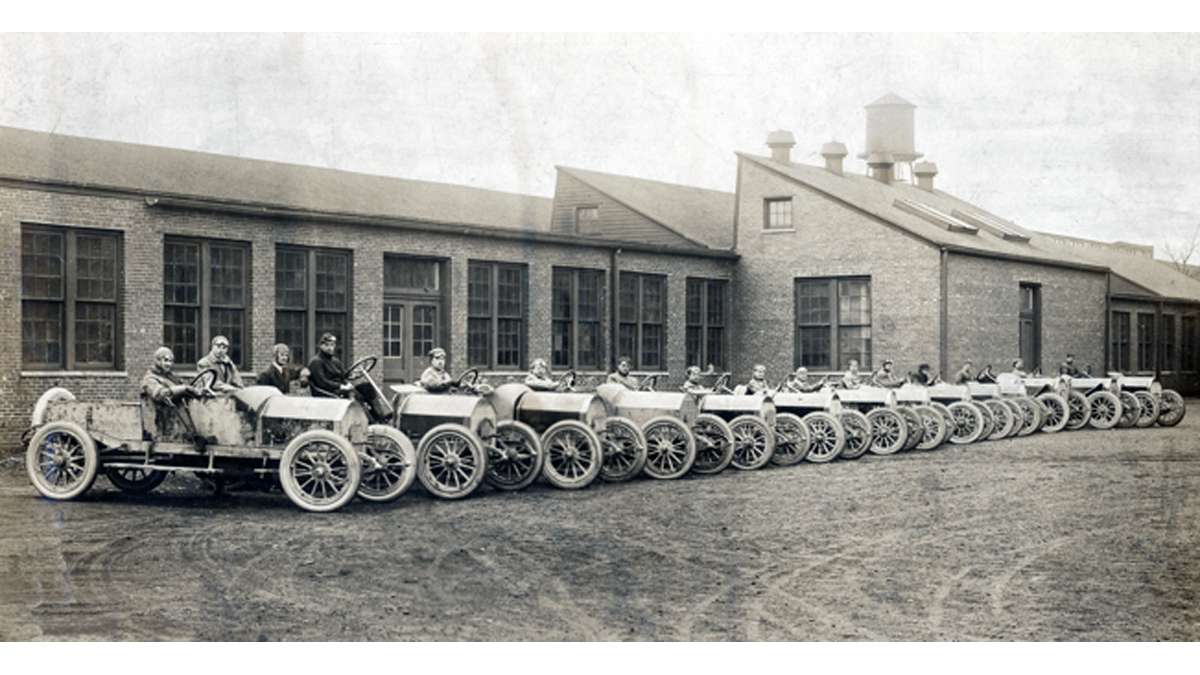
The 1912 Raceabout Test Drivers are pictured here at the Mercer Automobile Company's Factory on Whitehead Road in Trenton, New Jersey (Photo courtesy of Clifford Zink)
-
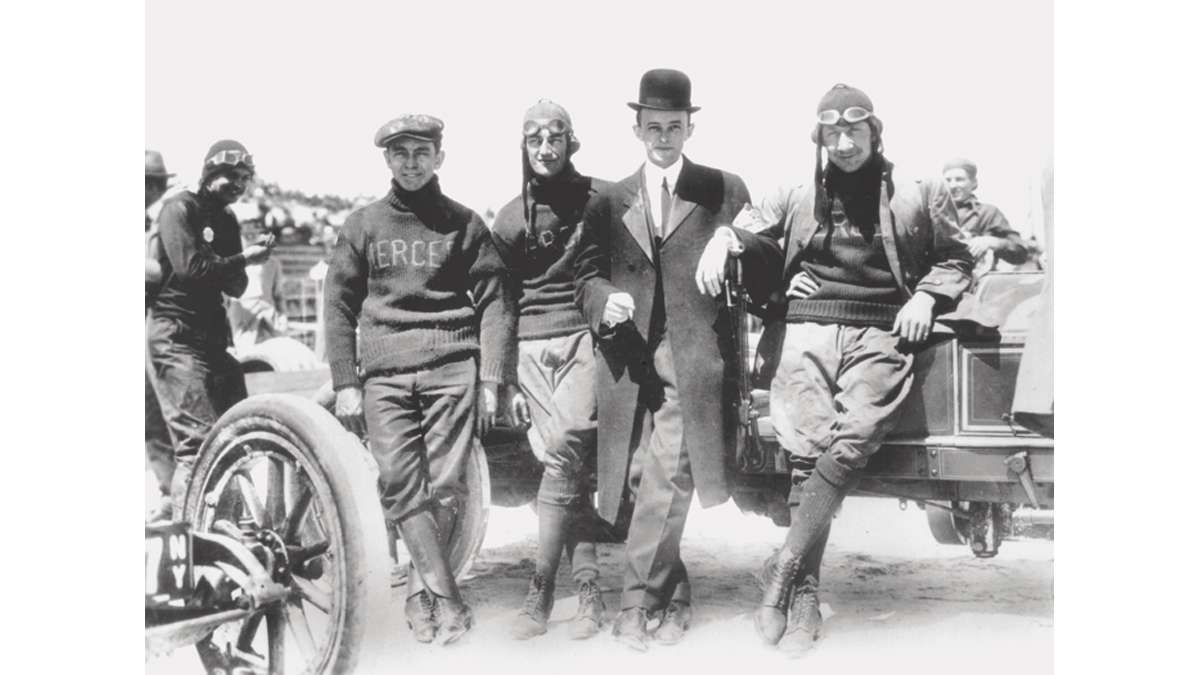
Pictured here is the 1911 Mercer Automobile Company Racing Team (Photo courtesy of Clifford Zink)
-
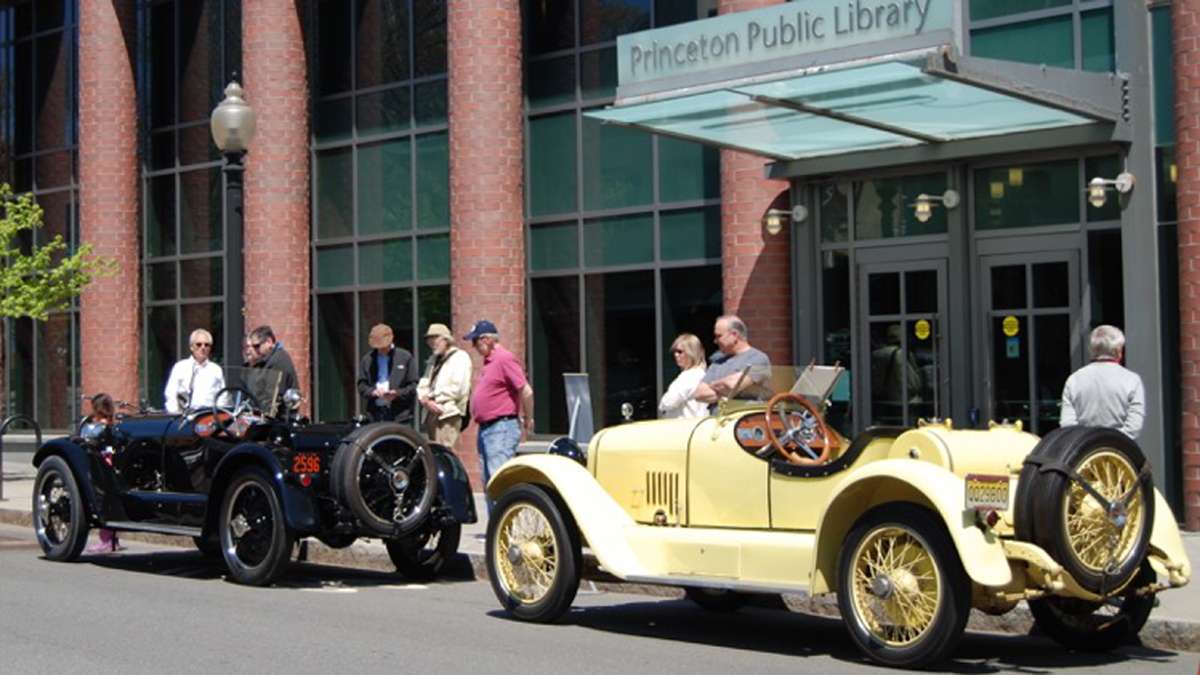
Two L-Head Mercer Raceabouts, canary yellow (1920) and black (1923), parked outside the Princeton Public Library. (Image courtesy of Princeton Public Library)
-
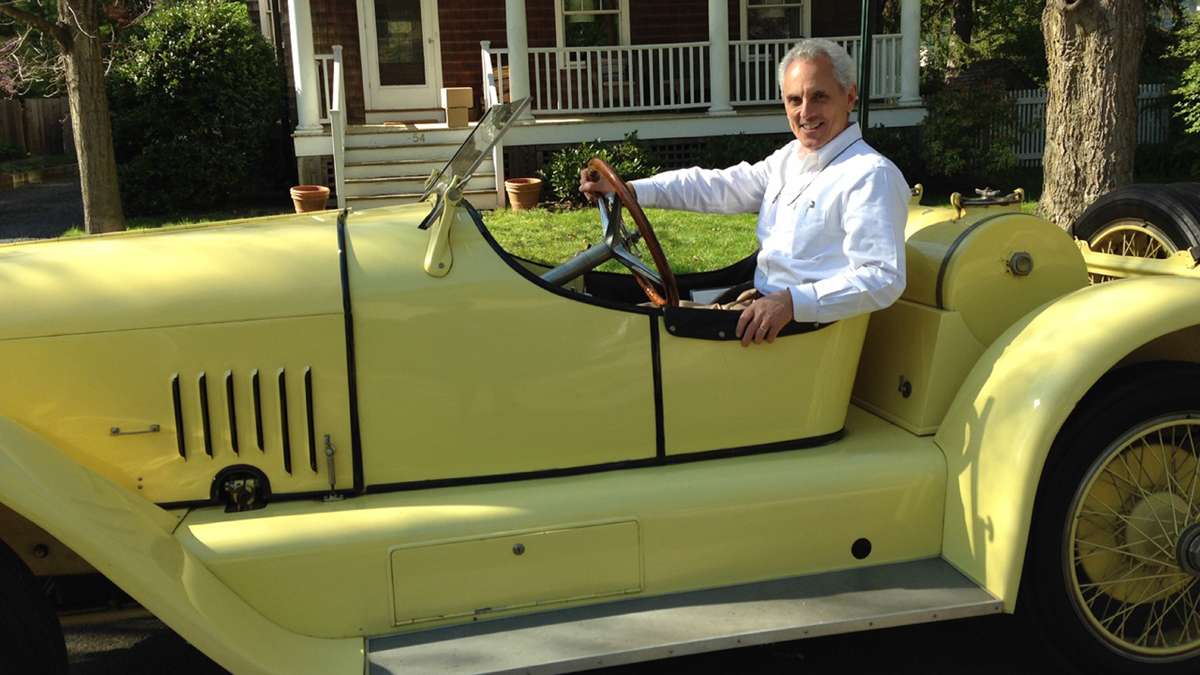
Author Clifford Zink is pictured here in a 1920, canary yellow, L-Head Mercer Raceabout owned by a Princeton, New Jersey vintage car aficionado. (Image courtesy of Zink)
-

On a recent Sunday in Princeton, those strolling along Witherspoon Street stopped to marvel at two vintage cars parked outside the Princeton Public Library.
The 1920 canary yellow Mercer Raceabout and 1923 black Mercer Raceabout belong to New Jersey aficionados who were eager to show off their jaunty antique cars.
These L-Head Raceabout cars — named for their early model engines — are two of the 140 cars that have survived from the production line of the Mercer Automobile Company, which set up shop in Trenton in 1909.
“When we think of car production today, we think of Ford, General Motors, and Chrysler. We think of the big names. Well, when you look at the history, it’s incredible how many car companies were founded,” said Clifford Zink, a historian who specializes in preserving and protecting historic sites in New Jersey.
The Mercer Automobile Company was founded by two Trenton industrial families — the Roeblings and the Kusers. And in the early days of the car industry, one company got to market first — Mercer.
During a recent appearance at the Princeton library, Zink gave a presentation based on his new book, “Mercer Magic: Roeblings, Kusers, The Mercer Automobile Company And America’s First Sports Car.”
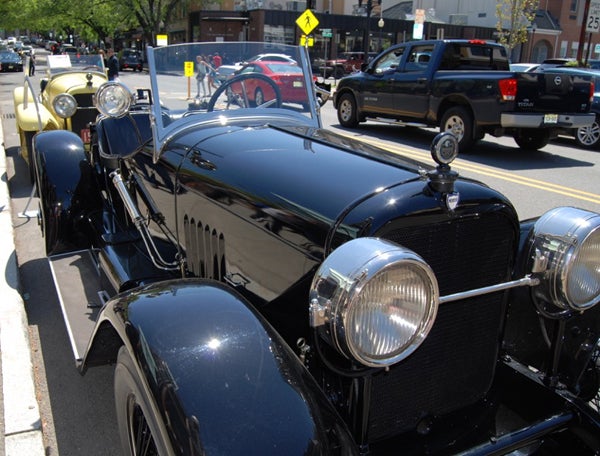
His sixth book traces the history of the Mercer Raceabout — now a highly-prized antique that Zink calls “America’s first sports car.”
“These Mercer Raceabouts that they’re racing — these are stock cars. These are not special production race cars. That’s why it’s America’s first sports car. It was the first car that you could buy as a stock production car, and take it to the track, and race it,” Zink said.
“There were other manufacturers that had some very fast cars, but they weren’t producing them as stock production cars, the way Mercer was in 1911.”
Finley Porter, who was the company’s chief engineer, designed the Raceabout in 1910. His innovation lit the spark plug that fired up the car industry.
The Raceabout transformed the industry, Zink said, because it was designed to handle two types of driving at once: day-to-day city excursions and racetrack competitions, transitioning smoothly from one mode to the other.
“You drive it around town during the week, or in the country. You just drive it yourself,” he said. “Then, you take the fenders off, and you take the lights off, and you take it to the race track.”
Today, Mercer Raceabouts are prized by collectors and museums. And Zink speaks about the design in a tone of awe.
“You can see how low it is. It’s low so that it holds the road very well. Look how low the seat are!” he said. “The seats are right down on top of the frame.”
Zink said his feelings about the Raceabout are similar to those of most car lovers — appreciation and respect. Zink mentioned one Raceabout fan in particular, Dr. Frederick Simeone, who founded an automobile museum in Philadelphia.
“There’s nothing on that car that doesn’t need to be there,” Zink said, recalling Simeone’s first impression of the Raceabout. “This car is set up for going very, very fast.”
Under normal conditions, the Raceabout could reach speeds of 70 mph. On the racetrack, 100 mph wasn’t out of the ordinary.
Zink said he shared Simeone’s impression of the Raceabout — it’s a well-crafted car, meticulously and efficiently designed. The Simeone Automotive Museum’s 70-vehicle collection includes a 1913 Mercer Raceabout 35J, one of 24 extant Raceabouts produced by the Mercer Automobile Company in the first three years of production.
Zink’s talk at the Princeton Public Library was supported by National Endowment for the Humanities. “Mercer Magic” is published by the Roebling Museum, an industrial history museum approximately 10 miles south of Trenton. Zink won the 2012 New Jersey Author’s Award in popular nonfiction for his book “The Roebling Legacy,” and he has also served as a consulting curator at the Roebling Museum.
Zink will talk about “Mercer Magic” Sunday at 2 p.m. at the Hopewell Branch of the Mercer County Library in Pennington.
WHYY is your source for fact-based, in-depth journalism and information. As a nonprofit organization, we rely on financial support from readers like you. Please give today.


